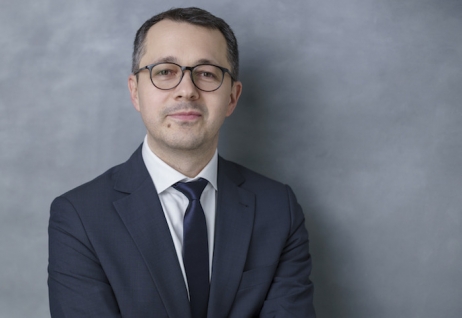
Although much has been said over the years about the potential Romania has to become a developed economy, the truth is that our country has not succeeded to overcome the condition of “promise”, remaining like a rosebud that everyone is waiting to flourish.
Last year’s evolution is, indeed, satisfactory and encouraging, but in spite of a significant growth of 3.5 percent of the GDP, the volume of foreign direct investment is still low (only €2.7 billion), large infrastructure works are on standby, these issues being reflected in the economic slowdown recorded in the first half of 2014. For the perception on our country and the economic situation to possibly change there is need of more. There is need of continuity and consistency, particularly in the decision-making process and rule of law, yet, in spite of most recent developments, especially the fiscal changes, the future sounds decent.
S&P’s upgrading which provided Romania with investment grade comes as a confirmation of the efforts paid in the past years conceding a different status in the regional context, with positive ramifications which will probably become visible in the long run.

A positive signal from this point of view has been sent by the EY Attractiveness survey which places Romania on the third place in the CEE region, behind Poland and the Czech Republic as a potential investment destination. Romania, hence, surpassed Hungary with perspectives to reach the second place given the decline of the Czech Republic, as Alexandru Reff, Partner of Reff & Associates SCA also observes. Another aspect possibly determining some positive effect on Romania’s business environment is the crisis in Ukraine which could lead investors targeting Ukraine, Russia or even the Republic of Moldova to reconsider their options, and Romania is one of the first alternatives as investment destination.
Notwithstanding, whether the recent events in Ukraine or the improved perception will effectively reflect in the economy by attracting increasing investment is yet to be determined. Prof. Dr. Jorg K. Menzer explains that although they get enquiries from investors about Romania, many of them still go to Poland and Hungary. “If you look at the big picture those countries are still more attractive than Romania. Even the Czech Republic is becoming more attractive”, he adds.
Undoubtedly, Romania still cannot compete with Poland or the Czech Republic at present, as apart from the well-known issues like the legislative incoherence, the lack of a national strategy keeps investors looking for stability and predictability away. “Romania does not have a national plan, strategy. The other countries have a more practical and business oriented assistance to investors. Romania is missing a true partnership with the private sector”, says Adriana Gaspar, Senior Partner at NNDKP. The real competition is therefore with our neighboring countries, Bulgaria and Hungary and, compared to them, Romania is doing better.
“When it comes to investors’ perception on it, Romania has a clear advantage over Bulgaria, as the political instability and the latest developments place Bulgaria under Russian influence and below Romania’s performance level,” says Alina Popescu, Managing Partner of Maravela & Asociatii. She further adds that Romania is slightly preferred by investors over Hungary these days, albeit not because of an outstanding performance of our country, but due to the latter’s negative evolution, as it has lately adopted a series of measures which caused irritation within the EU.
Still, Romania’s main advantage in the region remains the market size, explains Gabriel Biris, Managing Partner of Biris Goran, because, when it comes to the fiscal policy, for instance, there are only downsides, he stresses out: ”Bulgaria, Hungary, Slovakia, the Baltic States have lower profit taxes, some of them have even lower income taxes. As for social contributions, all of them are much better positioned than Romania, Bulgaria by far”.
Aside from all these aspects, either positive or less favorable, overall Romania is a stable economy with rides and downs, but none of them abrupt, as Mircea Jinga, partner at SCA Jinga & Asociatii also observes: “Romania still has its advantages in the region, showing stability at the macro-level, both politically and socially”.
The Legal Market keeps the pace with the economy
The legal sector in Romania, like any business area, is strongly influenced by the economic environment, so the evolution of the legal market is closely linked to the dynamics of the economy. The good news is that, even though times of economic distress take their toll on the legal market, firms, or, to be more accurate, certain departments in law firms will always be busy.
Last years’ boom in some industries, such as real estate or renewable energy, meant additional work for lawyers and, consequently, the need for firms to expand their portfolio, thus enlarging the existing departments or even setting up new ones. On the other hand, the years after the economic crisis brought litigation, insolvency matters, foreclosures to the spotlight, and they remain some of the most important practice areas for law firms in terms of earnings. Most law offices have added new areas of expertise and now offer integrated services. So, while in the past there was a trend of specializing on one or few practice areas, the fierce competition these days shifted the direction, law firms take a punt on extensive advising services in a wide range of sectors.
In this context, adaptability is the keyword, a sort of ‘survives only who is willing and capable to conform to the new market conditions’.

The legal market in Romania is a small one, one dominated by domestic law firms. This is, perhaps, because, unlike large international firms, they have managed to better understand the changes in customer needs and have adapted much faster to the new requirements and directions.
Proofs in this view are the departures in 2013 of two other foreign firms. After we watched Linklaters leave Romania in 2008 and Garrigues in 2010, last year two more global players exited the domestic market.
First it was White&Case that announced their withdrawal, early last year, the American firm with a global presence in over 25 countries having established a cooperation agreement with Bondoc & Asociatii SCA for local projects. Shortly after, Gide Loyrette Nouel, present on the domestic market for 15 years, announced they were pulling out of Romania, too. As for other major international law firms, there is no new entry foreseen in the near future.
There weren’t any noteworthy changes on the legal market, the major players preserved their market shares, new law firms were established, but more as a result of consolidations, says Laurentiu Pachiu, Managing Partner and Founder of Pachiu & Asociatii: “There were some consolidations of smaller law firms, perhaps for pulling through difficulties and survive, not for expanding the market share”.
The legal market has evolved keeping the pace with the economy – Romania had a good run last year which was visible in the financial results of law firms, many of them reaching their peak of recent years as regards revenues. But then, the economic slowdown recorded in the first half of the year is visible on the legal market as well.
“We had a stronger start in 2013 than in 2014, but that is just our experience, I’ve talked to competitors and some of them also said that they started stronger last year than this year, but I’ve had others saying that `we actually had a fairly good start’, so I think that is maybe not indicative of a general trend”, says Bryan Jardine, Managing Partner of Wolf Theiss.
The present situation is confirmed by Gabriel Biris, Managing Partner of Biris Goran: “We had a 40 percent increase in revenues in 2013 over 2012. The first four months of 2014 confirm the advance recorded last year, but obviously, at a lower growth rate”.
Alexandru Reff, Partner of Reff & Associates SCA, also talks about expansion: “The closing of the last financial year on May 31 shows an 11 percent increase in turnover, which is a performance”.
Pressure on honoraria remained a constant in 2013 and there are no prospects to change in the short term. Nevertheless, in the medium term the situation is likely to improve, Alexandru Reff believes: "This trend will be reversed and I expect the fees to be increasing in the medium term”. This is because the economy has moved upwards, generating more interest and legal work for lawyers, he explains.
The pressure and the intense competition have led to a sharp decrease of fees, even dumping cases and the law firms that dropped prices to the very bottom will face great difficulties when attempting to raise them again. Contrariwise, others have paid efforts to maintain a certain level of honoraria, being confident that clients will be willing to pay the right price for quality services. “There is more understanding that high end work for lawyering activities has to be paid”, says Prof. Dr. Jorg K. Menzer, explaining that in fact the pricing is not the main issue, but the quality. His view is also shared by Laurentiu Pachiu, who noted a decrease in the quality of the legal work on the domestic market.
Hence, it is very likely for the pressure to further move towards the quality of lawyers’ work, instead of fees, which will prove to be stimulative for a constructive competition on the legal market, as law firms will need to focus not only on expanding the expertise areas, but also on providing high quality services.



 October 03, 2014 16:45
October 03, 2014 16:45 








